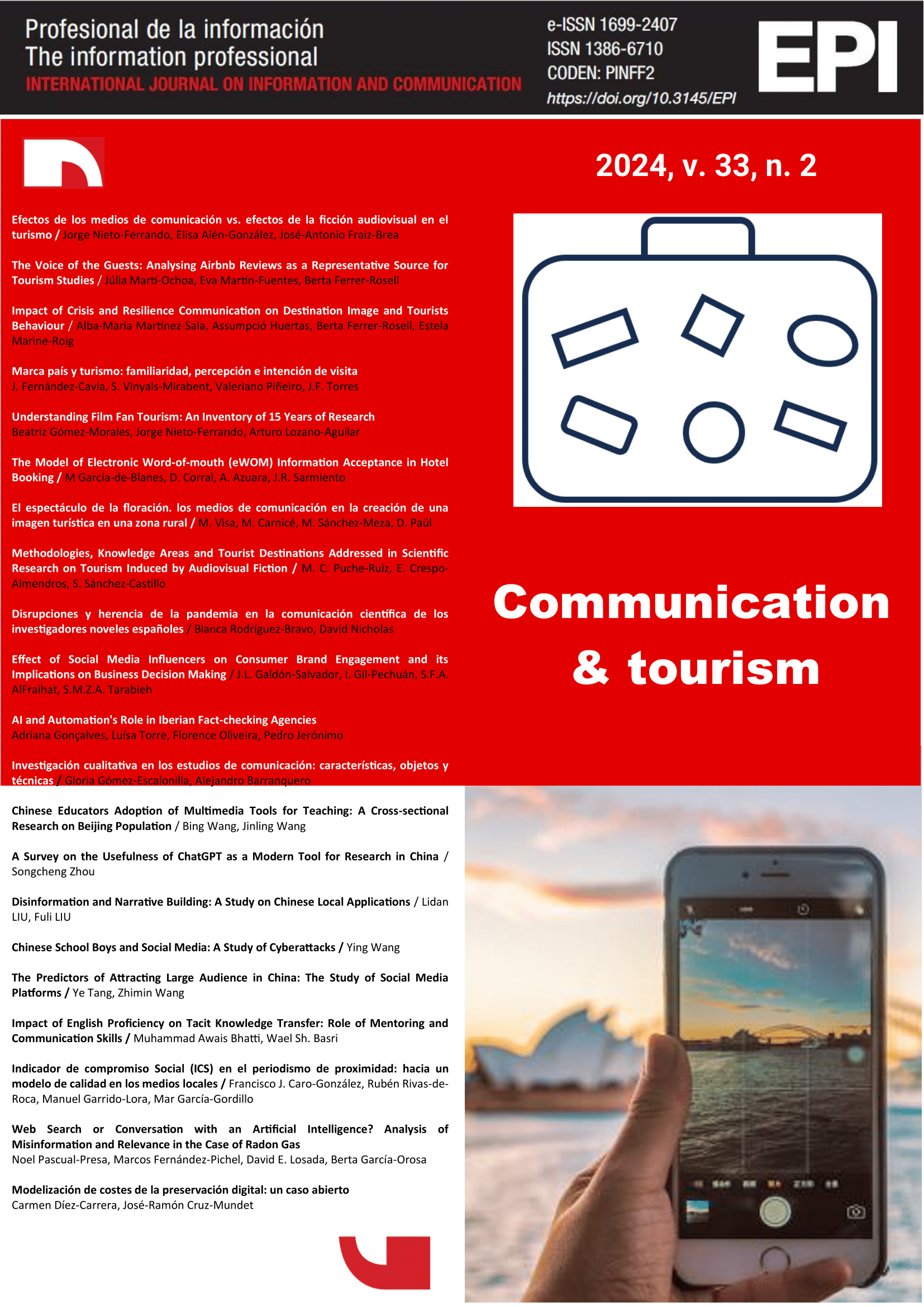Understanding Film Fan Tourism: An Inventory of 15 Years of Research
DOI:
https://doi.org/10.3145/epi.2024.0205Palabras clave:
Film Tourism, Film-induced Tourism, Film Fan Tourist, Audiovisual Fiction, Travel Motivations, Travel Experience, Fan Creative Practices, Fan Community, Tourist Profile, Tourism Segmentation, Literature ReviewResumen
The first studies of film and television as inducers of tourism appeared in the 1990s. From the outset, research in this area has identified a diverse range of tourist profiles, highlighting the fact that audiovisual media fans constitute an important segment of the tourism market because fan consumers dedicate considerable amounts of time, money, and energy to pursuing their specific interest. As a result, academic researchers have developed a substantial body of knowledge in this field over a relatively short period. The objective of this article is to offer a critical review of studies that have enhanced our understanding of film fan tourists to identify critical gaps in knowledge and, consequently, propose new ways to fully integrate the fan perspective into studies of audiovisual fiction-induced tourism. To this end, all the articles dealing with this specific tourist profile indexed in Web of Science, Scopus, and Google Scholar (49) have been identified and analysed based on their year of publication, geographical location, type of audiovisual production studied, methodology adopted and composition of the sample, major research themes and main theoretical and/or practical contributions. This review of the literature on film fan tourists finds that our understanding of the specific characteristics of the profile and behaviour of this type of tourist is still limited. This is due to some extent on the lack of consensus on the definition of the concept of “fans”, which has led to the erroneous classification of tourists whose travel motivation has nothing to do with a film and/or television production—and who may not even be fans of that production—as film fan tourists. The recommendations of this review thus focus mainly on reaching a consensus on the definition of the concept and establishing a single set of selection criteria for future research
Descargas
Descargas
Publicado
Cómo citar
Número
Sección
Licencia
Derechos de autor 2024 Profesional de la información

Esta obra está bajo una licencia internacional Creative Commons Atribución 4.0.
Condiciones de difusión de los artículos una vez son publicados
Los autores pueden publicitar libremente sus artículos en webs, redes sociales y repositorios
Deberán respetarse sin embargo, las siguientes condiciones:
- Solo deberá hacerse pública la versión editorial. Rogamos que no se publiquen preprints, postprints o pruebas de imprenta.
- Junto con esa copia ha de incluirse una mención específica de la publicación en la que ha aparecido el texto, añadiendo además un enlace clicable a la URL: http://revista.profesionaldelainformacion.com
La revista Profesional de la información ofrece los artículos en acceso abierto con una licencia Creative Commons BY.




